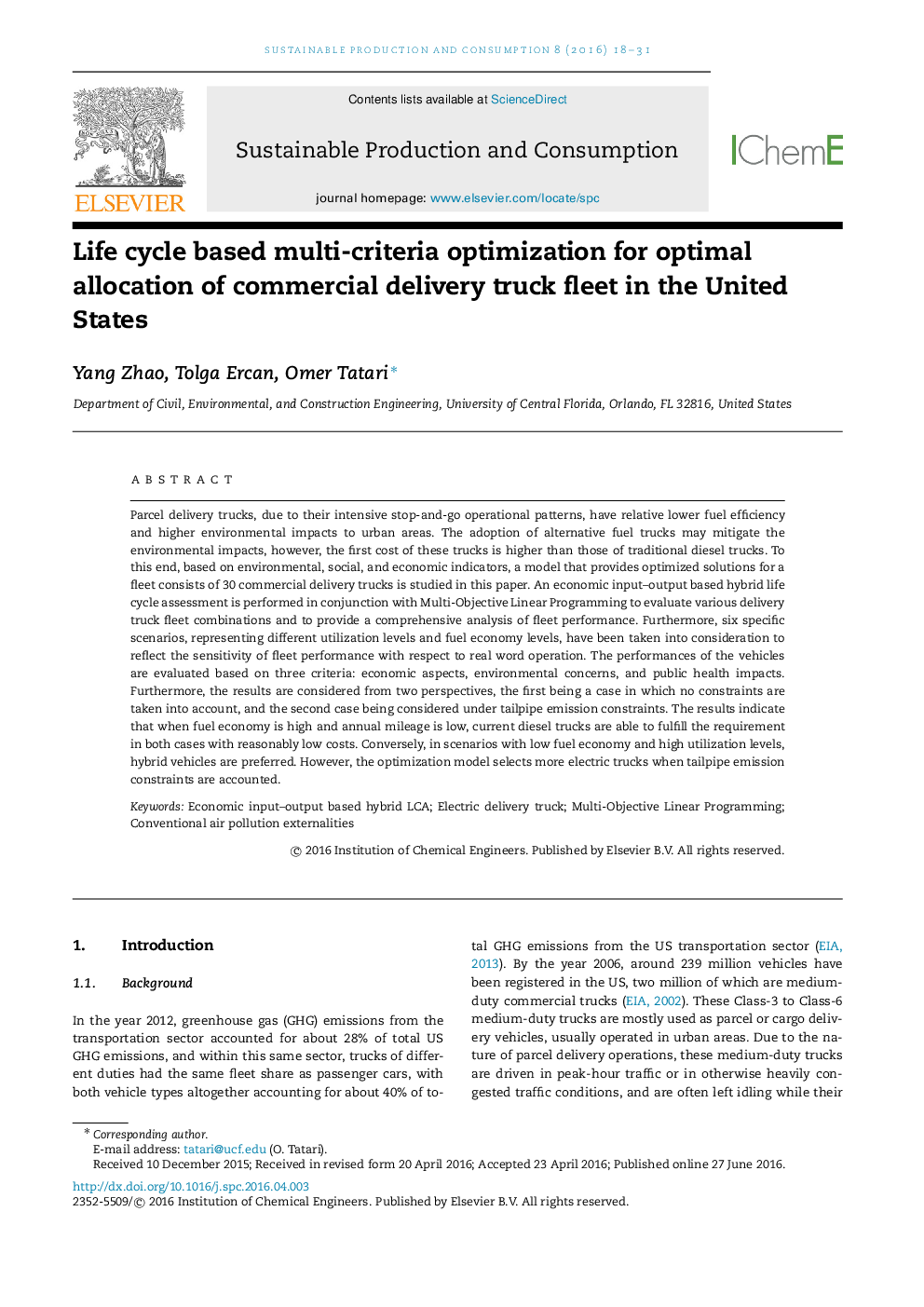| Article ID | Journal | Published Year | Pages | File Type |
|---|---|---|---|---|
| 7107483 | Sustainable Production and Consumption | 2016 | 14 Pages |
Abstract
Parcel delivery trucks, due to their intensive stop-and-go operational patterns, have relative lower fuel efficiency and higher environmental impacts to urban areas. The adoption of alternative fuel trucks may mitigate the environmental impacts, however, the first cost of these trucks is higher than those of traditional diesel trucks. To this end, based on environmental, social, and economic indicators, a model that provides optimized solutions for a fleet consists of 30 commercial delivery trucks is studied in this paper. An economic input-output based hybrid life cycle assessment is performed in conjunction with Multi-Objective Linear Programming to evaluate various delivery truck fleet combinations and to provide a comprehensive analysis of fleet performance. Furthermore, six specific scenarios, representing different utilization levels and fuel economy levels, have been taken into consideration to reflect the sensitivity of fleet performance with respect to real word operation. The performances of the vehicles are evaluated based on three criteria: economic aspects, environmental concerns, and public health impacts. Furthermore, the results are considered from two perspectives, the first being a case in which no constraints are taken into account, and the second case being considered under tailpipe emission constraints. The results indicate that when fuel economy is high and annual mileage is low, current diesel trucks are able to fulfill the requirement in both cases with reasonably low costs. Conversely, in scenarios with low fuel economy and high utilization levels, hybrid vehicles are preferred. However, the optimization model selects more electric trucks when tailpipe emission constraints are accounted.
Keywords
Related Topics
Physical Sciences and Engineering
Chemical Engineering
Process Chemistry and Technology
Authors
Yang Zhao, Tolga Ercan, Omer Tatari,
